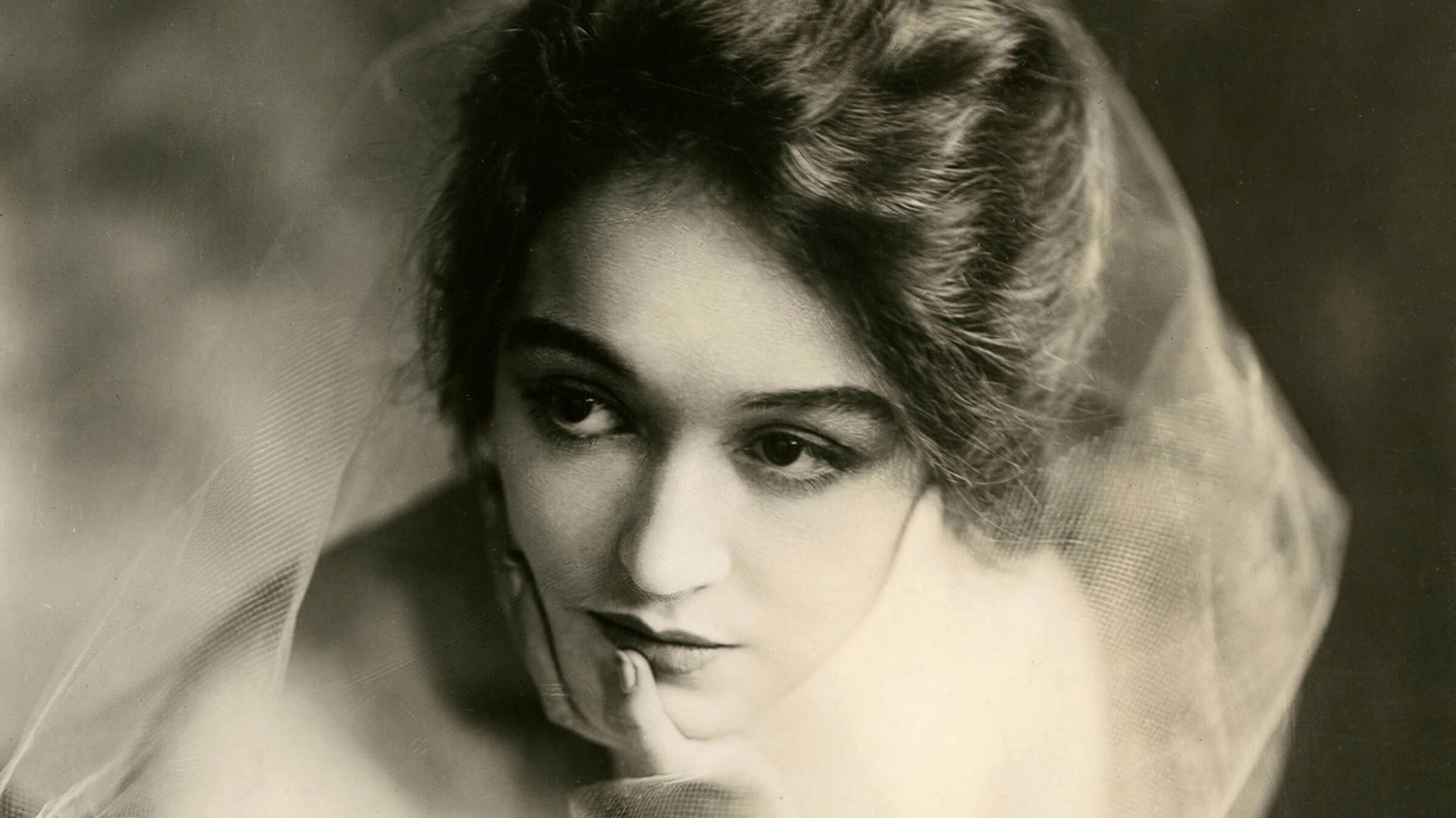Reprinted in conjunction with the screening of Stella Maris at SFSFF 2023
If the land of calcium and make-believe is one of unending fascination for you. If you have ever hung around a railroad station watching for the “opery house” troupe to arrive; if as a child you harbored a desire to be one of those little blonde darlings who said her prayers before the footlights and fairly dissolved the audience in tears—then you would love knowing Gladys Brockwell. For Gladys Brockwell was carried on the stage to play her first part when she was but three and a half years old. By the time she had reached her gawky schoolgirl years she was playing all manner of parts in a stock company from romping children on the stage to murderous, grown-up shrieks in the wings. She was eleven when it fell to her lot to play three parts in one performance of East Lynne. Not a normal childhood, but one fraught with excitement of life back stage. Learning a part on the day a show had to be given, feverishly lengthening a skirt and making a dress look grown up while some one listened to her lines, sleeping on jerky trains and eating wherever and whatever was available; spoiled and petted one day, ignored the next; belonging to a vivacious, companionably gay creature who seemed surprised and a little abashed at the idea of being a parent—that was Gladys Brockwell’s childhood.
At fourteen, widely experienced and with considerable business acumen she went into vaudeville as the head in a dramatic skit. Coming into pictures at eighteen, girls even older than herself looked on her as an old-timer.
She seemed to be the pet inspiration of the advertising men in the days of those old Fox melodramas that she starred in. They lavished on her the titles of Modesjeska of the Screen, Empress of Fiery Emotions, and she was the original of that phrase that has since become so hackneyed that it is always a cure for a laugh—The Girl of a Thousand Faces.
“Oh, they made me look very grand on the billboards, and in the publicity,” Gladys Brockwell told me one day recently, recalling those old days at my insistence. “But the studio carpenters didn’t read the papers evidently. They went right on calling me “Glad-eyes,” so I didn’t have to suffer the loneliness of greatness at my own studio.
“I used to loll about on tiger skins in many of those pictures and receive gorgeous presents from leering men. After a day of that I would go home and darn stockings or do something prosaic like that. Salaries weren’t so grand in those days. We were lavish only when we were on the screen.
“People actually used to believe that I was like the parts I played. As a wicked woman of the world my advice was sought through my fan mail on every subject connected with impropriety and sin. I’m afraid some audiences still expect that, they may think I am like the old hag I played in The Hunchback of Notre Dame. It’s great for your art to play these character parts, but a girl ought to have a chance at a few young roles before she is shelved in them.”
As she spoke a little regretfully of the public that thought she was an old woman because she had played such parts and wished wistfully for a place in the fuzzy close-ups, I cringed a little and averted my glance. Until recently, in fact, I had a hazy notion that she was a nice, big, raw-boned woman about forty, with a stern countenance. Instead, she is a bob-haired blonde who rushes about with a sort of restless energy.
“Yes, I was off the screen for quite a long time after the expiration of my Fox contract,” she told me. “Not that I wanted to be. I suppose I had some mistaken notions about how important I was. Anyway, I had to sit home until I got over them.”
There is an engaging frankness and gayety about Gladys Brockwell that is refreshing. She never seems to be saying anything to make an impression or be diplomatic. She just skips from one subject to another, ridiculing herself more often than not. But for my part I wouldn’t care much what she talked about as long as she talked. I wish that I could describe her sort of voice as to make you hear it. It is one of those vibrant voices that has met all the demands of a hundred melodramas but not one of these stage voices that sounds upholstered.
Don’t let me give you the impression that Gladys Brockwell had no childhood at all. She certainly did, as attested by a collection of snapshots which her grandmother recently dug out of the attic of their old Brooklyn home and sent to her. One of them shows her a chubby youngster dominated by an enormous hair ribbon and standing proudly beside a new bicycle. With her was another youngster of about the same age.
“Guess who it is,” she urged me. “Someone you’re crazy about. Every one is.”
It was Dorothy Davenport, better known as Mrs. Wallace Reid. They were chums as little girls and are still devoted friends.
Glady Brockwell came to New York in January to play in some First National productions. It was entirely natural that in building up a troupe of versatile players they should think of her. Her first appearance will be in Chickie, in which she plays Dorothy Mackaill’s mother. She is bound to be good; she always is. But since meeting her I cannot help wishing that she might get her wish to play a young part in a picture again. I would like to have the public know her just as she is.
Condensed from the original profile, “Adventure and the Adventuress,” from the May 1923 issue of Picture-Play magazine.

